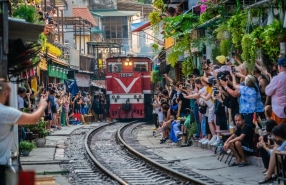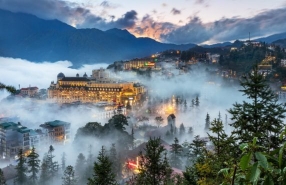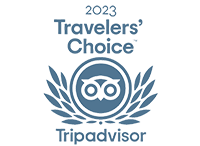What To Do In Hoi An ? Discover Cham History At My Son Sanctuary

Planning your next trip and wondering what to do in Hoi An ? Beyond the lantern-lit streets and riverside cafés, there’s one destination you simply can’t miss - My Son Sanctuary. Tucked away in a lush green valley about an hour from the Old Town, this ancient site reveals the mysterious legacy of the Champa Kingdom. Imagine standing among red-brick temples that have survived for centuries - doesn’t that sound magical ? Visiting My Son is not just about history, it’s about experiencing one of the most unique things to do in Hoi An : blending culture, nature, and adventure in a single journey. Ready to step back in time, feel the sacred atmosphere, and uncover stories carved in stone ? Let’s explore together.
What to do in Hoi An ? Discover Cham History at My Son Sanctuary
I. General information about My Son Sanctuary
1. What is My Son Sanctuary ?
Location : Duy Phu Commune, Duy Xuyen District, Quang Nam Province
Google Maps : https://maps.app.goo.gl/Xtq3FzvTYcADjxuA6
Entrance Fee :
Adults (15 years old and above) : 150,000 VND (~$6) per person
Children (5 - 15 years old) : 50,000 VND (~$2) per child
Children under 5 years old : Free entrance
Opening Hours : 6:00 AM – 5:00 PM (every day, including holidays and Tet)
So, what exactly is My Son Sanctuary ? Hidden in a valley of Quang Nam Province, this sacred land was once the spiritual and political heart of the Champa Kingdom for nearly a thousand years. Recognized as one of the remarkable UNESCO World Heritage sites in Vietnam, it stands out not only for its historical value but also for its mysterious architecture - temples and towers built entirely from brick without mortar. How did they do it ? Until today, researchers are still fascinated !
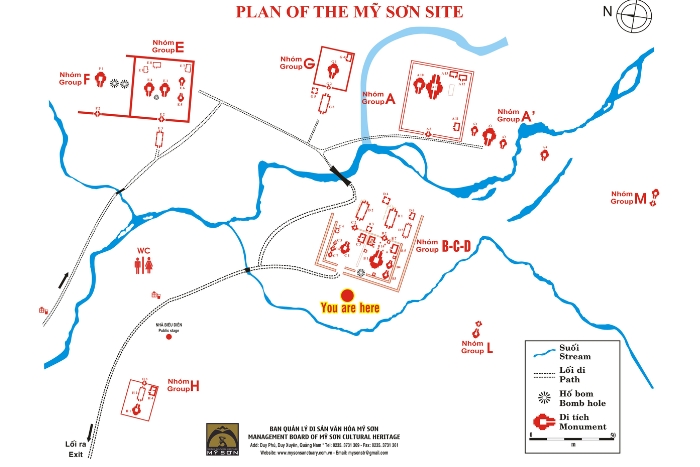
Surrounded by lush jungle and mountains, the site is often compared to "Vietnam’s Angkor Wat". And the best part : it’s only about an hour’s drive from Hoi An, making it one of the most unforgettable Hoi An attractions. If you’re planning a trip to Central Vietnam, a journey here promises both breathtaking scenery and a deep dive into ancient culture.
2. History of My Son Sanctuary
Stepping into My Son Sanctuary is like turning the pages of a thousand-year-old history book. Built in the 4th century by King Bhadravarman, the complex was the sacred heart of the Champa Kingdom, dedicated to Shiva - the Hindu god of creation and destruction. Over the centuries, more than 70 temples and towers rose in this lush valley, where kings performed rituals and warriors were honored in royal burials. Can you imagine the sound of chants echoing through the jungle back then ?
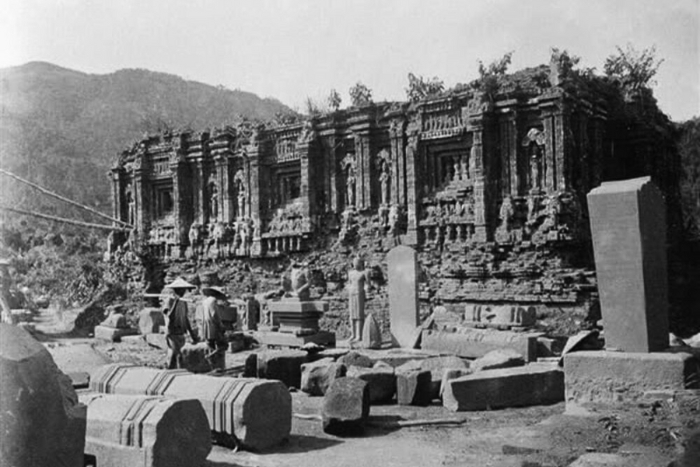
After the fall of Champa, the site was abandoned and slowly swallowed by nature until French explorers rediscovered it in the late 19th century. War later scarred the ruins, yet their spirit endured... Today, a trip to My Son Sanctuary is more than just sightseeing - it’s an emotional journey into Vietnam’s past and one of the most rewarding answers to the question of what to do in Hoi An.
3. Architecture of My Son Sanctuary
Walking through My Son Sanctuary, you can’t help but wonder - how did the Cham people create such enduring masterpieces ? Imagine a 2-kilometer-wide valley once filled with 71 temples and towers. Today, only about 20 remain, yet they still reflect the genius of the Champa civilization. The temples were built from red bricks and sandstone, decorated with carvings of Hindu gods, celestial dancers, and mythical animals.
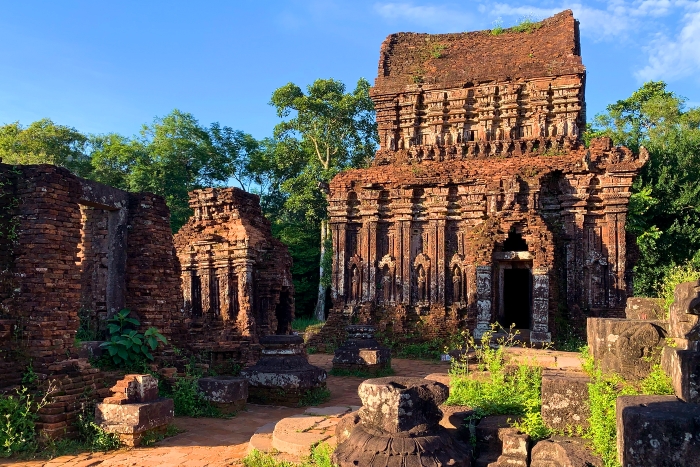
What’s truly astonishing - no mortar was used, yet the structures remain standing after centuries of rain, heat, and even war. Researchers still debate whether it was tree resin, clay, or simply an ingenious technique now lost to time. Every detail carries meaning : the solid base for the human world, the sacred body for the spirits, and the tower top reaching toward the divine. No wonder it’s celebrated as one of the finest UNESCO World Heritage sites in Vietnam.
II. Top things to do and see at My Son Sanctuary
1. Visit the My Son Sanctuary Museum
Before stepping into the ruins, take a moment to explore the My Son Sanctuary Museum, located just past the entrance gate. Though small, this museum is surprisingly rich, offering the perfect introduction to your journey. On one side, you’ll find exhibits tracing the rise and fall of the Champa Kingdom, along with a replica of the Mukhalinga - a sacred Linga carved with a king’s face, once crowned with gold. On the other side, displays explain the meaning of mythical animals and Hindu symbols carved into the towers.
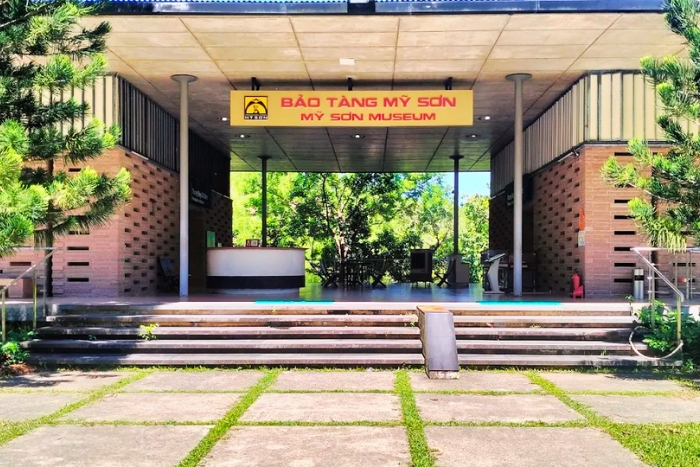
There are also tools, ancient inscriptions, and photographs showing the site before and after war damage. Curious how the Cham baked bricks without mortar ? The museum even has an interactive video that unveils this mystery. For anyone planning a trip to My Son Sanctuary, this stop is more than helpful - it’s one of the most insightful Hoi An attractions you shouldn’t skip.
2. Explore the Ancient Cham Towers and Temples
Exploring the ancient towers and temples is the heart of any visit to My Son Sanctuary. After buying your ticket, a shuttle bus takes you into the lush valley where the ruins are spread over 2 kilometers. Designated trails guide you past different clusters, each with its own history and charm.
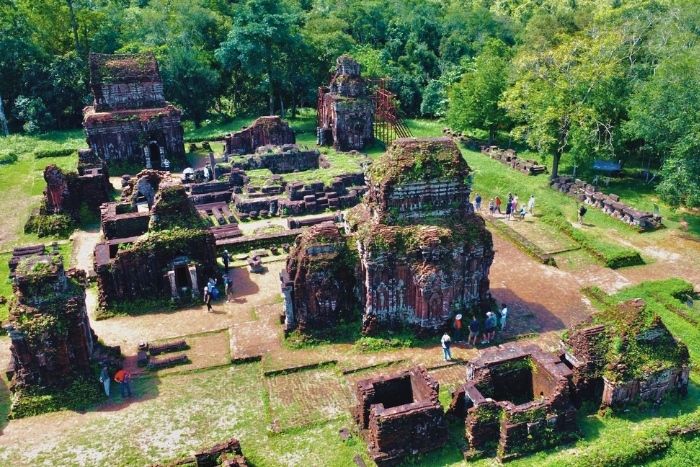
The central area, known as Groups B, C, and D, is the best preserved, featuring the impressive Kalan tower dedicated to Shiva, along with mandapas and libraries. Group A, although badly damaged during wartime, still gives a haunting sense of scale. If you walk farther, Groups G and E provide a quieter atmosphere, ideal for reflection or photos. Bilingual boards along the way explain carvings of gods, dancers, and mythical creatures - bringing the past to life. Among the top things to do in Hoi An, this walk through time is both educational and deeply moving !
3. Experience the Kate Festival
If your journey to My Son Sanctuary falls in October, you’re in for a rare treat - the Kate Festival ! This annual event, held in the 7th month of the Cham calendar, transforms the quiet ruins into a stage of vibrant colors, music, and sacred rituals. Imagine processions carrying offerings, prayers dedicated to Shiva, and the rhythmic sound of paranung drums echoing through the valley. Doesn’t that sound unforgettable ?
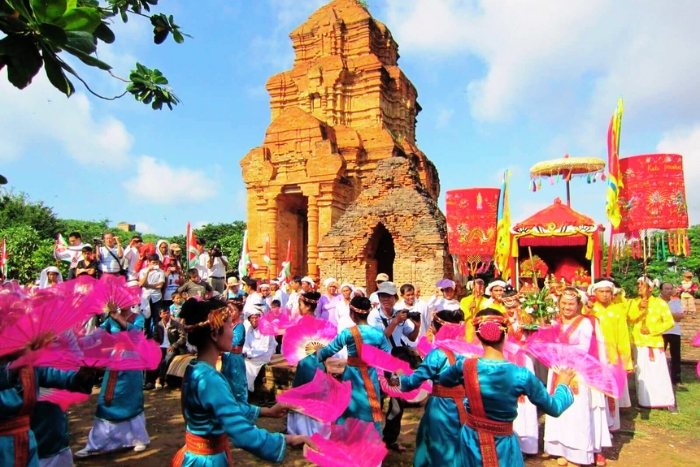
Beyond the ceremonies, the festival is a celebration of Cham identity : graceful Apsara dances, folk games, and even traditional dishes shared among locals and visitors. The atmosphere is both spiritual and joyful, allowing travelers to see My Son not just as ancient ruins, but as a living cultural space. For anyone planning their list of what to do in Hoi An, attending the Kate Festival is a chance to witness history, faith, and art come alive in one moment.
4. Watch the Apsara Dance Performance
Performance Schedule :
Morning :
Group G Tower : 9:15 AM
Main Stage : 10:00 AM & 10:45 AM
Afternoon :
Group G Tower : 2:15 PM
- Main Stage : 2:00 PM & 3:30 PM
When you think a trip to My Son Sanctuary is only about ruins, wait until you see the Apsara dance ! Performed daily near the entrance stage or inside the sanctuary itself, this traditional show lasts just 15–20 minutes, yet it feels like stepping into another world. Dancers in colorful Cham costumes move with such elegance - every tilt of the hand and sway of the body seems to echo stories from Hindu mythology.
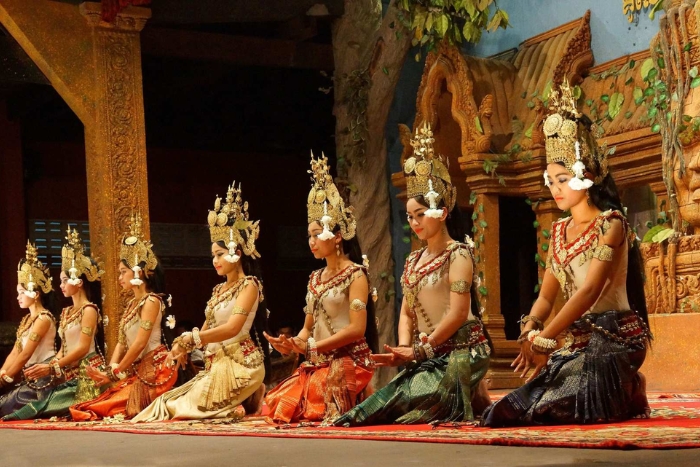
The music completes the magic : paranung drums beating like a heartbeat, the high notes of the saranai flute floating across the valley. For a moment, the sanctuary is no longer silent ruins, but a living cultural stage. Arrive early if you can, it’s worth finding a good seat. Among all Hoi An attractions, this performance is a rare chance to feel the soul of Champa - alive, graceful, unforgettable !
III. Essential travel tips for visiting My Son Sanctuary
1. Best time to visit My Son Sanctuary
Weather can shape your entire experience at My Son Sanctuary. The dry season (February - August) is perfect - blue skies, lush greenery, and little chance of rain. Early mornings (6 - 9AM) are magical : birdsong, golden light, and fewer crowds, while late afternoons bathe the temples in a soft glow. The rainy season (September - January) brings misty landscapes and peace, but flooding is possible.
Pro tip : Always check the forecast before heading out !
2. How to get to My Son Sanctuary from Hoi An
It’s about 40 km, so how do you travel from Hoi An to My Son Sanctuary ? Taxis and private cars are comfortable, while a motorbike offers freedom to stop in the countryside. Some travelers even join cycling tours or jeep adventures for a more unique route. No matter how you go, the journey itself is part of the adventure !
3. What to wear and bring for your trip
Expect lots of walking ! Dress practical yet respectful : breathable clothes, shoulders and knees covered, and sturdy shoes - trails can get muddy. Don’t forget sunscreen, insect repellent, water, and maybe a poncho in rainy months. Want an extra splash of fun ? Rent a Cham costume at the entrance. It’s one of the most playful Hoi An attractions for unique photos.
4. Practical tips for a smooth visit
Remember : respect the sacred site by not climbing or touching the ruins. Use the free shuttle to save energy, and stick to marked trails. Facilities are limited, so plan meals in town. For a deeper understanding of the Cham culture, join a guided tour - local experts from Autour Asia can enrich your trip to My Son Sanctuary with fascinating stories and hidden details you might otherwise miss. And don’t skip the cultural shows… they’re among the most memorable things to do in Hoi An !
Exploring My Son Sanctuary isn’t just about visiting old temples - it’s about feeling history under your feet, hearing echoes of ancient prayers, and realizing you’re standing inside one of the most remarkable UNESCO World Heritage sites in Vietnam ! The ruins are breathtaking, but without context they’re just stones… that’s why having a knowledgeable guide makes all the difference. If you’re still asking yourself what to do in Hoi An beyond lanterns and tailor shops, let Autour Asia lead you here. Their local guides share stories, legends, and hidden details that bring the Champa civilization back to life. A trip to My Son Sanctuary with them isn’t only a day tour - it’s a cultural journey that will stay with you long after you leave.
You might be interested in :
- Planning a journey to My Son Sanctuary ? Autour Asia, your trusted Vietnam travel agency, is here to help you plan the perfect trip with helpful advice.
- Central Vietnam Tours
- Central Vietnam Discovery Tour 5 Days
- 3 Days in Hoi An Da Nang
If you’re wondering how to spend 2 weeks in Vietnam, the best way is to travel from north to south (or vice versa) to see the country’s highlights. Start in Hanoi and cruise through Halong Bay, then head to Hue and Hoi An for history and culture. Continue to Ho Chi Minh City for vibrant urban life and explore the Mekong Delta for floating markets and lush landscapes. This route gives you a perfect mix of nature, culture, and local experiences.
What to do in Hoi An when it rains? Don’t worry – the city still has plenty to enjoy. You can take part in a cooking class, explore the Ancient Town’s old houses, or visit museums and art galleries to learn more about local culture. Rainy days are also perfect for joining a lantern-making workshop or enjoying a warm cup of coffee in a riverside café while watching the peaceful scenery. Instead of stopping your trip, the rain can make Hoi An even more magical.
Yes, My Son Sanctuary is definitely worth visiting! It’s not just a collection of old ruins – it’s a UNESCO World Heritage site that brings you into the heart of Cham history and culture. Walking among the red-brick temples surrounded by lush jungle feels like stepping back in time. You’ll see unique architecture, mysterious carvings, and even cultural performances like the Apsara dance. Located just an hour from Hoi An, it’s an easy and rewarding trip for history lovers, photographers, and curious travelers alike.
Related travel guide
Other similar articles
CUSTOMIZABLE BY LOCAL EXPERTS
Personalized trip at the original price!
REFUND GUARANTEE
We believe in our work and promise to give you money back.
GOOD PRICE / QUALITY
95% satisfied more than expected!
24/7 LOCAL SUPPORT
We are always available online to provide assistance at any time.
Most read articles
Autour Asia is highly recommended on
Embracing the mission of "Satisfied more than expected" and providing authentic experiences, we have received numerous recommendations on reputable travel forums:














